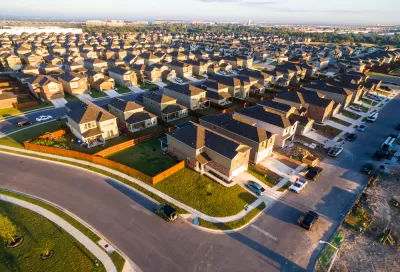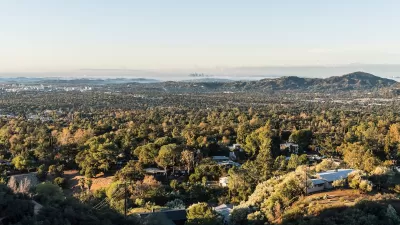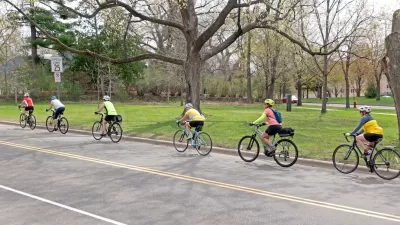The growth of institutionalized housing has led to growing inequality between Black and white homeownership rates in the Twin Cities, new research shows.

Last month, Bill Lindeke warned against the growth of affordable housing as a commodity, saying that "if left unchecked, institutionalized housing threatens to become a modern-day feudalism." A new report, which shows that "[d]espite the overall wealth of the [Twin Cities] metro area, there’s no starker sign of its metropolitan segregation of opportunity than the wide gulf between Black and white homeownership rates, the largest in the nation," validates his fears. The report, "Who Owns the Twin Cities?," was released this month by the Urban Institute. The report "analyzed the impacts of the COVID-19 pandemic on the Twin Cities’ longstanding racial gap in home ownership rates," explains Lindeke. "The authors, Yonah Freemark, Eleanor Noble and Yipeng Su, were interested in how the events of 2020 affected that key inequality."
According to the report, "[n]o other U.S. metro area features such stark inequality around who owns property, with a large gulf between Black and white people. Because owning a home is central to economic and political power, that gap is a key part of regional landscape of structural racism, and explains that lack of the stability and wealth for the majority of Black residents."
When COVID-19 hit, "there was a rapid transformation of employment and commuting patterns. That change, along with the slow recovery, exacerbated already existing inequality." The report shows that "private equity firms have begun to play outsized roles in the markets for certain neighborhoods, particularly north Minneapolis." The commodification of real estate is cause for concern:
"In general, the Urban Institute study is a red flag for housing policymakers in a metro area already facing stark inequality, and it describes a trend that’s particularly difficult to study. Researchers like Noble point to a key problem with studying the single-family rental landscape: the complexity of financialization. The lack of easily accessed data around property ownership and rental licensing makes it exceedingly time-consuming to keep track of who owns what homes, especially given the rapid pace of mergers and sales of homes-as-assets."
Lindeke warns that "[w]ithout some policy change, it seems clear that the nation’s largest gap in homeownership is not going to disappear anytime soon."
FULL STORY: Widening homeownership gap in Twin Cities is focus of new report

Planetizen Federal Action Tracker
A weekly monitor of how Trump’s orders and actions are impacting planners and planning in America.

Congressman Proposes Bill to Rename DC Metro “Trump Train”
The Make Autorail Great Again Act would withhold federal funding to the system until the Washington Metropolitan Area Transit Authority (WMATA), rebrands as the Washington Metropolitan Authority for Greater Access (WMAGA).

DARTSpace Platform Streamlines Dallas TOD Application Process
The Dallas transit agency hopes a shorter permitting timeline will boost transit-oriented development around rail stations.

San Francisco's School District Spent $105M To Build Affordable Housing for Teachers — And That's Just the Beginning
SFUSD joins a growing list of school districts using their land holdings to address housing affordability challenges faced by their own employees.

Car-Centric LA Suburb Looks to a Train-Oriented Future
City leaders in Rancho Cucamonga, the future western terminus of the Brightline West rail line to Las Vegas, want to reimagine the city as a transit-oriented, pedestrian-friendly community.

New Alaska Bitcoin Mine Would Burn as Much Energy as the State’s Largest Coal Plant
Fueled by “stranded” natural gas, the startup hopes to become the largest in the US, and to make Alaska an industry center.
Urban Design for Planners 1: Software Tools
This six-course series explores essential urban design concepts using open source software and equips planners with the tools they need to participate fully in the urban design process.
Planning for Universal Design
Learn the tools for implementing Universal Design in planning regulations.
Municipality of Princeton
Roanoke Valley-Alleghany Regional Commission
City of Mt Shasta
City of Camden Redevelopment Agency
City of Astoria
Transportation Research & Education Center (TREC) at Portland State University
US High Speed Rail Association
City of Camden Redevelopment Agency
Municipality of Princeton (NJ)





























